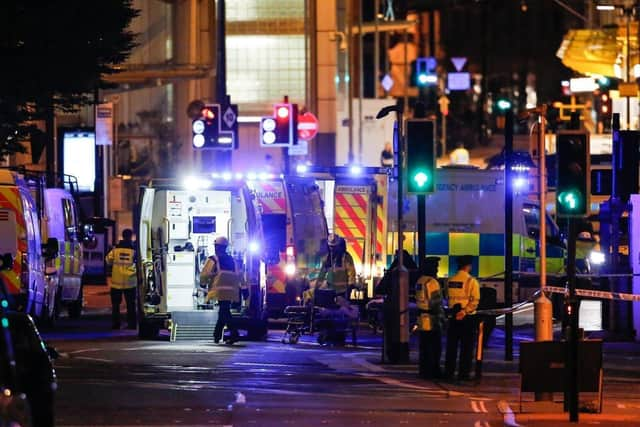Manchester Arena bombing jury told to 'put emotion to one side'
and live on Freeview channel 276
Mr Justice Jeremy Baker urged the 12 members of the jury to deliberate over the evidence "with dispassion and objectivity", putting aside any "sympathy for the family and friends" of the victims and survivors.
Abedi has been on trial at the Old Bailey for the last six weeks, accused of the murder, attempted murder and conspiring with his brother Salman Abedi to cause explosions.
Advertisement
Hide AdAdvertisement
Hide Ad

It was Salman, 22, who set off a suicide bomb as thousands of men, women and children left an Ariana Grande pop concert at Manchester Arena on May 22 2017.
Among those killed were Sorrell Leczkowski, 14, from Adel, Leeds; Courtney Boyle, 19, a Leeds Beckett University student from Gateshead; Kelly Brewster, 32, from Sheffield; Wendy Fawell, 50, from Otley; and Angelika and Marcin Klis, a couple from York.
Prosecutors said the Manchester-born brothers "stood shoulder to shoulder" in the alleged plot, with the younger sibling "just as guilty of murder" as the bomber himself.
Addressing jurors as he began his summing up on Friday, the judge said: "The death of anyone is obviously a sad event, so too is the suffering of serious injury - the more so when the death and injury takes place prematurely in circumstances such as these.
Advertisement
Hide AdAdvertisement
Hide Ad"It would be surprising therefore if you were not exercised to some extent with sympathy for the family and friends both of the deceased and the injured in this case.
"However, as I am sure you will appreciate, emotions are likely to obscure rather than clarify one's ability to discern the truth, which is your task in this case.
"Therefore, for the purposes of the exercise which you will be performing when you deliberate upon the evidence next week, it is important for you to put any such feelings to one side for the time being and to undertake your task with dispassion and objectivity."
Also in crime: Hushed courtroom hears about final movements of Leeds victims of Manchester Arena bombing
